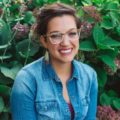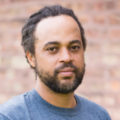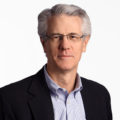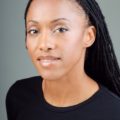2020 a2ru National Conference
About
The 2020 a2ru National conference, Land and Equity: The Art and Politics of Place, was held online and hosted by the University of Wisconsin–Madison, starting October 15, 2020. Programming was spread across the second half of October, taking place in the late afternoon Eastern Time.
a2ru advances the full range of arts and design-integrative research, curricula, programs, and creative practice from across the disciplines in order to acknowledge, articulate, and expand the vital role of higher education in our global society. a2ru’s work, in partnership with more than 35 research institutions, envisions a world in which universities—students, faculty, and leaders—explore, embed, and integrate the arts in everyday practice and research. The a2ru National Conference is an opportunity for practitioners and researchers from across the higher education spectrum to share innovations and perspectives in the arts.
Featured Speakers


As a citizen of the Cherokee Nation, Dr. Keene has committed her life and work to exploring research methodologies that empower Native communities and privilege Native voices and perspectives, with the ultimate goal of increasing educational outcomes for Native students. She uses her work to push back against stereotypes and misrepresentations of Native peoples and her blog, Native Appropriations, has received national and international attention for highlighting contemporary Indigenous issues. She is also one half of the popular All My Relations podcast.


Emmanuel Pratt is an urban designer and MacArthur fellow (2019) whose career bridges the academic and activist milieu. He has created a model of resident-driven community development in neighborhoods that have suffered the effects of long-term disinvestment. Pratt is co-founder and executive director of the Sweet Water Foundation (SWF), a nonprofit organization based on Chicago’s South Side that engages local residents in the cultivation and regeneration of social, environmental, and economic resources in their neighborhoods.


Dr. Fleming Crim has spent 40 years in the Department of Chemistry at the University of Wisconsin-Madison, where he is now the John E. Willard and Hilldale Professor Emeritus. He has lectured around the world, published more than 150 papers, and won many awards, including the Plyler Prize of the American Physical Society and the Centenary Medal of the Royal Society of Chemistry (London). Currently the Chief Operating Officer at the National Science Foundation, Crim will be a keynote for the a2ru conference and the Wisconsin Science Festival (October 15 – 18, 2020) and will address “NSF’s Broader Impacts: Fostering Connections to Expand the Societal Benefits of Basic Research.”


Michele Byrd-McPhee is the executive director and founder of Ladies of Hip-Hop Festival (LofHHF). Aware of the limited opportunities for women in Hip-Hop dance, Byrd-McPhee set out to create a safe space and a neutral zone for female hip-hop dancers. She wanted a space where “the art does not get lost or stifled because of complexities of male / female relationships” and women can define themselves, rather than let others define them. Byrd-McPhee currently provides organization and artist consulting services; production management services; and continues to be an advocate for the Hip-Hop dance community, especially for women.
Host
The 2020 conference was hosted by a2ru partner University of Wisconsin–Madison, a Big Ten Research 1 land grant institution that has worldwide impact while remaining inextricably rooted in the state it serves. One of the oldest and deepest traditions of the University is The Wisconsin Idea, the principle that its research and teaching should better the lives of people not only in the classroom but also throughout the state and the world.The University of Wisconsin-Madison is dedicated to intentionally and publicly acknowledging that it occupies ancestral Ho-Chunk land, called Teejop since time immemorial, through the multi-year Our Shared Future effort.
Theme
The 2020 theme Land & Equity considered how our work as artistic, scientific, and humanist researchers and educators is defined by the land on which we find ourselves, and asks who has access to that land and its resources? In turn, we examined how our art, research, and teaching impacts the places and spaces in which we live and work, and discussed ways that we can use that work to advance more equitable access.
Special Ground Works Session
Dear Arts-Integration Community: A Letter of Inquiry from the CERN-IARI Collaboration (via a2ru Ground Works)
Wednesday, October 28, 2020, 3-4:30pm EDT
In this session, a2ru Ground Works invited the interdisciplinary CERN-IARI team at the Spencer Museum of Art, University of Kansas, to present their early-stage research, followed by feedback from a Ground Works panel and a discussion with session attendees. As the team—composed of a visual artist, curator, mathematician, and physicist—was in the conceptual phase of their work together, their presentation was about potential and process rather than a finished project.
Here, we borrowed and adapted a process from the Particle Physics and Nuclear Physics communities, wherein individuals submit letters of interest detailing their research topics and questions for community-wide consideration. We considered: How is the CERN-IARI team’s work valuable, with “value” assessed differently by our invited panel members, depending on their varied roles and situations? How does the team’s work advance the (still ill-defined) field of arts-integrated research?
